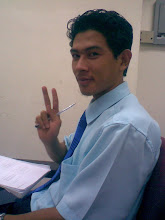
Kicking your smoking habit isn't easy. A lot of people have tried to stop smoking several times and many have failed in it. There are some who go cold turkey and are successful, some enroll into programs and take nicotine replacements and medications but still can't seem to quit their habit. Most quitters will tell you that it's not only determination that will get you through the process, but also discipline, and lots of it. Especially during the withdrawal period, it is important that you learn in advance how to deal with the physical and psychological problems that may and will come with quitting. First and foremost, it's most effective if you set a date when you will stop smoking. Tell your friends and family about this date, a support system can do miracles in keeping you from falling back into your old habit once you've stopped smoking. Also, stock up on gums, candies, or anything that you can munch or chew on whenever you feel the urge to light up a cigarette. Another tip is to still keep the habit of holding a cigarette in your hand even after your Quit Day. That way you can pretend that you're smoking and still keep the habit of having a smoke in hand without actually lighting it up. Keeping this habit is a psychological trick that will make it easier for you to slowly detach yourself from the act itself. Remember, at first, it's more important to just get rid of the habit of inhaling cigarette smoke itself, not the other habits that come with it. On the next stage of your cessation, you can start replacing the cigarette stick with cinnamon sticks, then with a pencil, and so on until you have finally gotten rid of the urge to stick a cigarette in your mouth. Stop Smoking Now programs and support groups can also be a big help when you want to stop smoking. A lot of people swear by the telephone-based program where you get to talk to a counselor. The good thing about this support hotline is that the counseling you are given is tailored to fit your needs and is based on your previous smoking pattern. An example is the American Cancer Society's Quitline which offers counseling programs in several areas all over the country. If you consult your doctor, he or she can help you determine whether you will be needing nicotine replacements in the first stage of your program. Replacements can include patches, lozenges, herbal mixtures and such. On the other hand, you can also ask your doctor about prescription antidepressant that will help reduce the symptoms of nicotine withdrawal. The trick though is not in taking these alternatives, but in finding the right solution for you even before you stop smoking. Finally, engage in physical activities, preferably outdoors. Stress at work or elsewhere should not be an excuse that will keep you from changing your lifestyle. To stop smoking is just the same as to go on a diet. It will need your full focus, which means that you may eventually have to refrain from old habits (drinking, etc.) and adopt new ones that will help you not only keep your mind off of smoking, but also hasten your recovery from nicotine withdrawal.
Author Resource:- Stop-smoking-tips.com offers more information to help you stop smoking as well as many resources you can use to stop smoking now, visit our web site to learn more.










